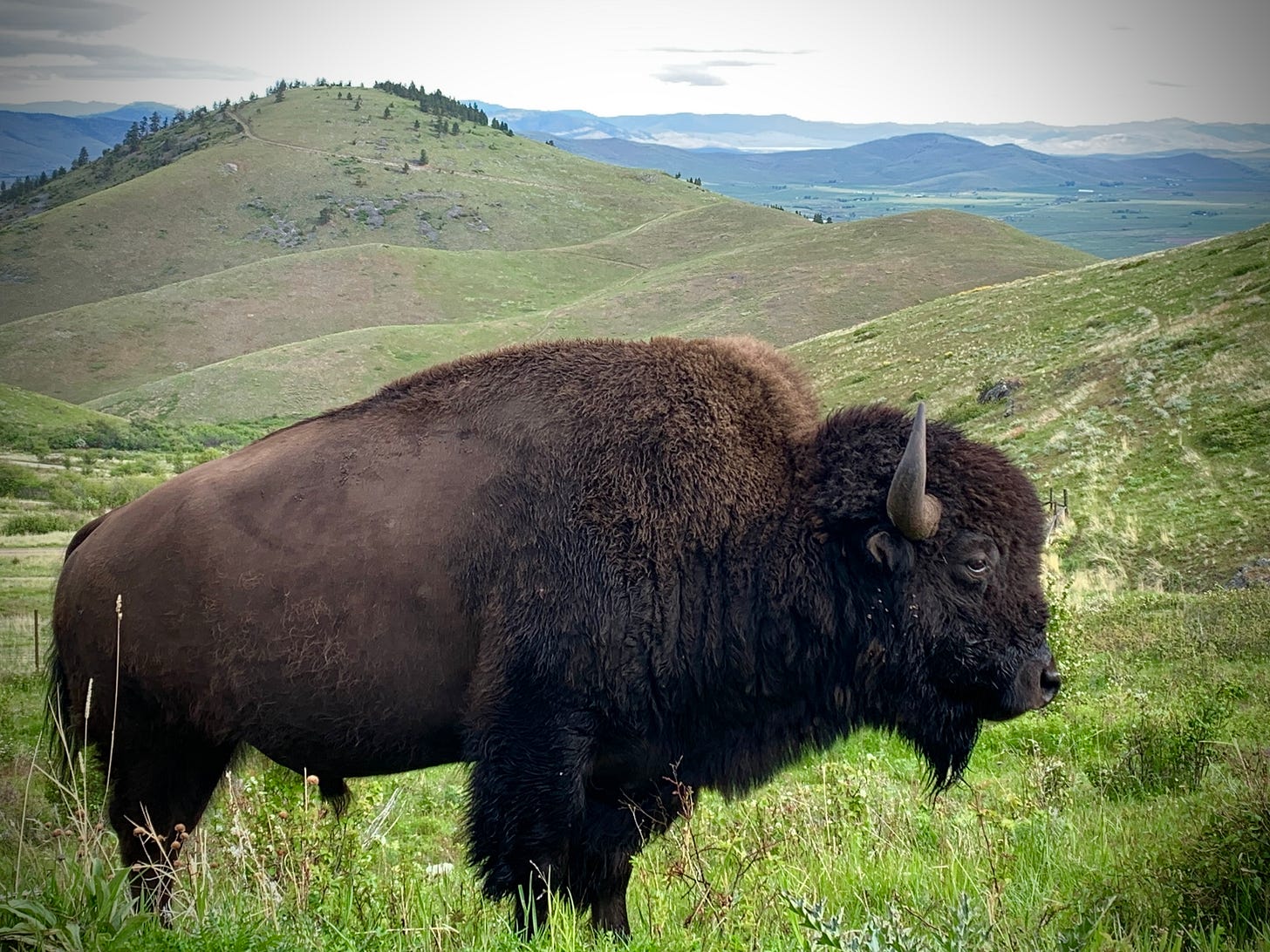I’ve just finished listening to the new book Scarcity Brain by Michael Easter.1 I’m not here to give book reviews but this book has some fascinating ideas for improving the lives we are choosing to live.
So you can research this independently, but basically his premise is that humans evolved to conduct our lives according to a “scarcity loop” which consists of three steps: 1) there’s an opportunity for an action 2) the action produces unpredictable, and therefore exciting, results 3) the action is easily repeatable. His example is slot machines. He spends chapters on this loop and its science and how video games, phone/social media notifications, the news cycle, food industry, and shopping impulses, are manufactured and amplified to play into that loop. It is fascinating, if terrifying. In other words I couldn’t look away.
Instead of depleting herself with the loop via money lost, carbs consumed, mental health destroyed etc., she’s living a more vibrant, interesting and productive life.
But then there’s a chapter where he profiles a woman who has spent her life differently. It’s Laura Zerra, if you want to look her up. His point is that she has taken that same loop, she has created what he called an “abundance loop:” She hunts antler sheds.2 She has found an activity that is 1) an opportunity for action (hunt, look, seek, hike, try to find) 2) with unpredictable results (these things are hard to find) 3) that is easy to repeat (so many animals! So many sheds out there!) Instead of depleting herself with the loop via money lost, carbs consumed, mental health destroyed etc., she’s living a more vibrant, interesting and productive life.
That’s the part I want to replicate. Can we just take a thing we enjoy, if it’s a repeatable action with unpredictable results, and enhance our lives by approaching our activities that way? Here’s a tentative example: the endless quilting I suddenly seem to be engaged in — it’s all those things, minus the unpredictable part. It’s pretty predictable that I’m going to end up with this lovely thing. It wouldn’t be worth all the effort if that wasn’t going to be the outcome. Who makes something ugly on purpose? Okay, that’s not a good action for creating an abundance loop.
How about trying to see wildlife when I’m on a drive through the Bison Range? That’s not predictable at all, and it’s somewhat repeatable — though I don’t have 2-3 hours to spend each day or two traveling there and spinning through, so the “opportunity for action” isn’t immediate enough.
Weight loss3 is one of Easter’s examples of the scarcity loop. As soon as we reach a desired weight (or hit the dreaded plateau), the results are no longer unpredictable. We get bored and wander off, as it were, forgetting the excitement of the morning scale check. How to make that exciting again?
I don’t have answers. I do think perspective is the key, however. If we can figure out how to make the loop be something positive — i.e., not dismantling our wallets, our mental health, or our waistlines — we might turn the whole project around. For example in the weight loss scenario I described, perhaps instead of allowing the decreasing number on the scale to be the motivator4 once we’ve reached our desired weight, we change the motivator to trying on one cast-aside pair of pants each morning to learn which are suddenly too big, or which once-too-small ones now fit. That’s kind of a dumb example. What about how much faster you can walk a mile than you could a day or two ago?5 Or maybe a before-and-after picture. Or maybe, if you’re watching what/how much you eat, new delicious foods you can find that both meet your calorie needs and don’t taste like cardboard.6
I’m still working on it here — but the goal is to turn those unhealthy habits into healthy ones, judo-ing the energy of our natural impulses into actions that help us live happier lives instead of self-destructive ones.
One of Easter’s lines is, “Each time we offload our quest and remove effortful exploration, we quit the journey.” This is some trite shit, amirite? But also profound. Because when we view the journey — any journey! Tomorrow’s road trip, next year’s house hunt, that new nonprofit I just launched — as a thrilling action with unpredictable results, then everything that follows is invigorating. This view enriches our lives. And when that’s all we’ve got — just the one life — don’t we want to live it as well as we can?
I also read The Comfort Crisis which was equally thought-provoking. I actually listened to them both and wouldn’t recommend this approach. Number one, he’s not a great reader. Number two, I need the hard copies so I can go back and revisit some of the concepts after they begin to fade from my memory.
Which is not a thing I enjoy, hey Starla?
I’m focusing on this because it’s on my mind.
this is step 2, the unpredictable result.
He actually talks about strength training in this way, and suggests that finding out how much more weight you can lift than you could last time or last month or whatever, is part of the excitement. Can weightlifters plateau?
For example last night I accidentally discovered for myself what millions of people already knew: strawberries are delicious with balsamic dressing!



Since you asked, yes, weightlifters plateau all the time. It’s a common theme in the Arnoldverse.